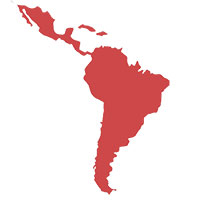Week Two: Back at COP20
Evan Weber | December 9, 2014.
Monday was the beginning of the second week of COP20 here in Lima. It also marked the start of the “People’s Summit” (Cumbre de los Pueblos), a gathering for civil society and activists parallel to, and intentionally separate from, the COP.
Inside the conference space, negotiations ran uncharacteristically on schedule, with two major processes (SBI and SBSTA) closing on time. Most notably, the negotiations over the ADP (which is the process to determine text for a Paris deal) kicked into high gear, with negotiators starting off by spending two hours negotiating a few lines of text. The main sticking point was over whether Parties should have “common but differentiated responsibilities” (CBDR) or “evolving common but differentiated responsibilities” to protect the climate system. While this may seem like a linguistic non-issue, the implications could determine whether countries like China, India, and Brazil have to make efforts comparable to countries like the United States and Germany.
In addition to CBDR, fault lines emerged over two key issues. On the question of a compliance mechanism to monitor and evaluate each country’s efforts to comply with the Paris Protocol obligations, rich countries sought to neutralise any punitive function such a mechanism might have, whereas the LDCs, led by Tuvalu, argued for a stronger body that could enforce action by imposing penalties for inaction.
There was disagreement over how the treaty would enter into force. Again, poor countries wanted a simple and low threshold for the treaty to come into force once a minimum number of countries had ratified it. Conversely, developed countries, led by the USA, argued for a ‘double threshold’ involving both a minimum number of countries, representing a minimum percentage of total emissions. The USA is seeking to avoid being bound by a treaty that China and India have not ratified.
The good news of the day: Norway decided to increase it’s pledge to the Green Climate Fund, increasing confidence that more pledges of public finance will continue to emerge over the coming years an the pathway to US$100 billion annual capitalisation by 2020. Just short of reaching the $10 billion target, the path still remains unclear.
The International Emissions Trading Association (IETA) — which receives its funding from large fossil fuel companies and financial institutions, and many activists inside COP consider a front group for industry — hosted an event featuring Shell Oil with participation by the economist Professor Nicholas Stern.
Stern has published highly influential research making the case for climate action, and contributed to some of the studies revealing the financial risks of investing in the fossil fuel industry. The event was originally titled “Why Divest from Fossil Fuels When a Future with Low Emission Fossil Energy Use is Already a Reality?” but after hearing that protests were planned, the name was changed to “Innovation and Investment: Drivers of Low-carbon Economic Growth for a New Climate Economy.“ The time of the event was also changed many times, with many speculating that this was to throw off demonstrators.
If that was the intention, the efforts failed and hundreds protested in a powerful action outside, uplifting the voices of those directly impacted by fossil fuel extraction. Then, hundreds rushed into the event itself causing a massive disruption. The message from activists to industry was simple: “Get the FF (Fossil Fuels) Out” of the climate negotiations.













comment